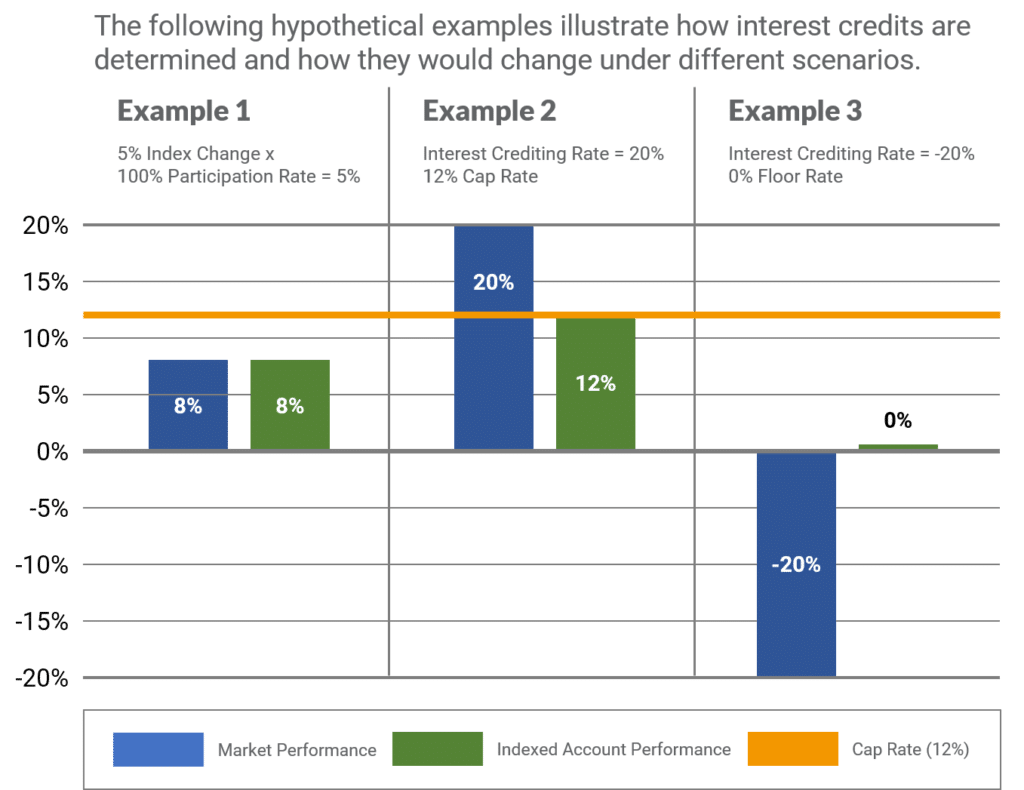All Categories
Featured
Table of Contents
Do they contrast the IUL to something like the Lead Total Amount Supply Market Fund Admiral Shares with no load, a cost proportion (EMERGENCY ROOM) of 5 basis factors, a turnover ratio of 4.3%, and a phenomenal tax-efficient record of distributions? No, they compare it to some terrible proactively taken care of fund with an 8% lots, a 2% ER, an 80% turnover ratio, and an awful document of temporary funding gain distributions.
Common funds typically make yearly taxable distributions to fund proprietors, also when the worth of their fund has dropped in worth. Mutual funds not only call for revenue coverage (and the resulting annual taxation) when the common fund is increasing in worth, yet can additionally impose revenue tax obligations in a year when the fund has actually gone down in worth.
That's not how mutual funds work. You can tax-manage the fund, harvesting losses and gains in order to lessen taxed distributions to the financiers, however that isn't somehow going to alter the reported return of the fund. Just Bernie Madoff kinds can do that. IULs avoid myriad tax catches. The ownership of common funds may call for the mutual fund owner to pay estimated tax obligations.

IULs are very easy to position to ensure that, at the proprietor's death, the beneficiary is exempt to either revenue or estate tax obligations. The exact same tax obligation reduction strategies do not function almost also with mutual funds. There are many, typically pricey, tax traps connected with the moment buying and marketing of mutual fund shares, catches that do not put on indexed life insurance policy.
Opportunities aren't really high that you're mosting likely to go through the AMT because of your mutual fund distributions if you aren't without them. The remainder of this one is half-truths at ideal. For circumstances, while it holds true that there is no income tax due to your successors when they acquire the profits of your IUL policy, it is likewise true that there is no earnings tax due to your heirs when they inherit a common fund in a taxable account from you.
Columbia Universal Life
The federal estate tax obligation exception restriction mores than $10 Million for a couple, and growing each year with rising cost of living. It's a non-issue for the large majority of doctors, much less the rest of America. There are far better methods to avoid inheritance tax problems than acquiring investments with reduced returns. Shared funds may cause earnings taxation of Social Safety advantages.

The growth within the IUL is tax-deferred and may be taken as tax cost-free revenue through finances. The policy owner (vs. the shared fund manager) is in control of his or her reportable income, thus enabling them to lower or even remove the tax of their Social Safety and security advantages. This is terrific.
Here's another minimal problem. It holds true if you acquire a common fund for say $10 per share right before the distribution date, and it distributes a $0.50 circulation, you are after that going to owe tax obligations (probably 7-10 cents per share) although that you have not yet had any gains.
In the end, it's truly concerning the after-tax return, not just how much you pay in tax obligations. You're also probably going to have more cash after paying those tax obligations. The record-keeping requirements for possessing shared funds are dramatically much more complex.
With an IUL, one's records are maintained by the insurer, copies of annual statements are sent by mail to the proprietor, and distributions (if any) are completed and reported at year end. This set is likewise type of silly. Of training course you ought to maintain your tax documents in situation of an audit.
Indexed Whole Life Insurance Policy
Barely a reason to get life insurance. Mutual funds are generally component of a decedent's probated estate.
On top of that, they are subject to the delays and expenses of probate. The profits of the IUL plan, on the various other hand, is always a non-probate distribution that passes beyond probate straight to one's named beneficiaries, and is consequently not subject to one's posthumous financial institutions, undesirable public disclosure, or similar hold-ups and prices.
We covered this under # 7, yet simply to wrap up, if you have a taxed mutual fund account, you need to place it in a revocable trust (or even easier, make use of the Transfer on Fatality designation) in order to avoid probate. Medicaid disqualification and life time income. An IUL can provide their proprietors with a stream of income for their entire lifetime, no matter for how long they live.

This is advantageous when organizing one's affairs, and transforming properties to income before an assisted living home confinement. Common funds can not be converted in a similar manner, and are usually considered countable Medicaid properties. This is an additional dumb one promoting that inadequate people (you recognize, the ones who need Medicaid, a federal government program for the bad, to spend for their retirement home) need to use IUL rather than shared funds.
Iul Nationwide
And life insurance coverage looks terrible when compared rather versus a pension. Second, individuals that have money to get IUL over and beyond their retirement accounts are mosting likely to need to be horrible at managing cash in order to ever before certify for Medicaid to pay for their assisted living home prices.
Persistent and incurable ailment motorcyclist. All plans will permit a proprietor's simple accessibility to cash from their policy, frequently forgoing any surrender fines when such individuals experience a serious health problem, need at-home treatment, or come to be confined to a nursing home. Shared funds do not give a comparable waiver when contingent deferred sales charges still put on a mutual fund account whose owner requires to offer some shares to fund the expenses of such a keep.
What Is Universal Life Insurance With Living Benefits
You get to pay more for that advantage (motorcyclist) with an insurance coverage policy. Indexed universal life insurance offers fatality advantages to the recipients of the IUL owners, and neither the owner neither the recipient can ever shed cash due to a down market.
Currently, ask yourself, do you in fact need or desire a fatality advantage? I certainly do not require one after I get to economic independence. Do I desire one? I suppose if it were cheap enough. Of program, it isn't cheap. Usually, a purchaser of life insurance policy spends for real price of the life insurance policy advantage, plus the costs of the plan, plus the profits of the insurer.
Nationwide Iul
I'm not totally certain why Mr. Morais threw in the whole "you can not lose cash" once more here as it was covered quite well in # 1. He just wished to repeat the most effective marketing factor for these things I intend. Once more, you do not shed small bucks, but you can lose genuine dollars, as well as face serious possibility price as a result of reduced returns.

An indexed global life insurance policy policy proprietor may trade their plan for an entirely different policy without activating income taxes. A shared fund proprietor can not relocate funds from one shared fund firm to another without offering his shares at the former (therefore triggering a taxable event), and repurchasing brand-new shares at the last, typically subject to sales charges at both.
While it holds true that you can trade one insurance plan for another, the factor that people do this is that the initial one is such a terrible policy that even after getting a new one and going with the very early, adverse return years, you'll still come out ahead. If they were sold the best plan the very first time, they shouldn't have any kind of wish to ever before exchange it and undergo the very early, adverse return years again.
Table of Contents
Latest Posts
Insurance Index
Iul With Living Benefits
Universal Index Life
More
Latest Posts
Insurance Index
Iul With Living Benefits
Universal Index Life